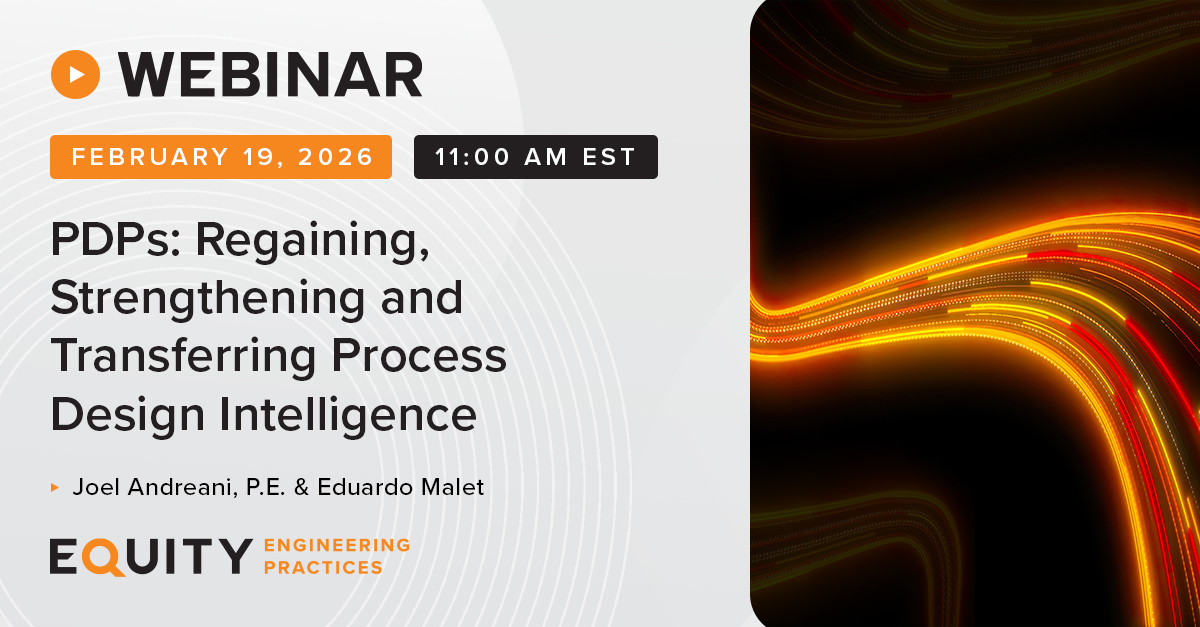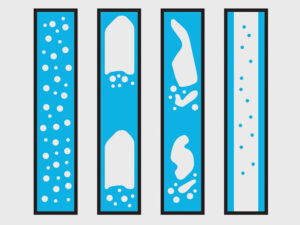ASSET INTEGRITY & MECHANICAL INTEGRITY
- Home
- Engineering
- Mechanical Integrity
Confidently Achieve Safe & Reliable Operations
Prevent loss of containment and structural instability by ensuring all equipment is designed, built, installed, operated, and maintained properly.
Asset integrity management (AIM) is designed to improve safety, environmental impact, and reliability. Continuously improving your AIM program will help your facility proactively evolve with changes in technology and the industry.
At Equity, we use a multi-disciplinary approach to provide both proactive and reactive strategies for every stage of an asset’s lifecycle. The mechanical integrity team will develop a repeatable MI program that is aligned to business goals and supports the delivery of safe and reliable operations.
Learn More About Mechanical Integrity From Equity's Experts
Increase Equipment Safety
Improve operational reliability
Prevent loss of containment
Improve business continuity
What's the Difference between Asset Integrity Management & Mechanical Integrity?
Asset Integrity Management
Asset Integrity Management (AIM) is a broad, comprehensive approach that balances costs, risks, and opportunities with asset performance to meet business objectives.
Best practice: develop the AIM capital project planning or the design stage to reduce costs and minimize risks.
Mechanical Integrity
Mechanical Integrity (MI) is a subset of asset integrity management and focuses on an asset’s ability to perform its required function to prevent, detect, and/or mitigate a major hazardous event.
Best practice: develop the MI program during the design stage of an asset.
Asset & Mechanical Integrity Consulting Service Areas
Collaboration with mechanical integrity experts to develop appropriate asset strategies for a facility’s equipment.
A multi-disciplinary approach to the development of efficient and reliable inspection and maintenance programs with a focus on improving long-term operational efficiencies.
Documentation of relief system basis and PRD installations, and development of an inspection plan for testing and overhaul of relief devices.
Machinery risk management audits will help prevent loss of containment, equipment failures, and a potential process safety event.
Development of key strategies for the successful planning and execution of a turnaround, including project scope management, engineering support, fitness-for-service assessments, repair or mitigation strategies, and post-shutdown planning.
Recommended Reading
- Asset Integrity /
- Industry Insights Articles /
- Mechanical Integrity /
- Asset Management /
- Library /
- Mechanical Integrity /
- Asset Management /
- Library /
- Mechanical Integrity /
- Webinars /
- Asset Management /
- Industry Insights /
- Library /
- Rotating Equipment /
- Asset Management /
- Industry Insights /
- Library /
- CCDs & IOWs /
- Industry Insights /
- Library /
- Ammonia & Fertilizer /
- Library /
- Mechanical Integrity /
- Tanks /
Testimonials
Asset & Mechanical Integrity Expertise
Continuous improvement is a key element of an MI program to ensure it evolves with changes in technology and requirements in the industry. E2G’s Mechanical Integrity Team combines its field experience in petrochemical, chemical, and oil and gas industries with a multi-disciplinary approach to support your MI program improvements and the full lifecycle management of assets.
Our Experts:
- Pioneered development of FFS and RBI
- Are the primary authors on WRC 528 and WRC 562
- Serve as the lead investigators on API 579 and API 571






